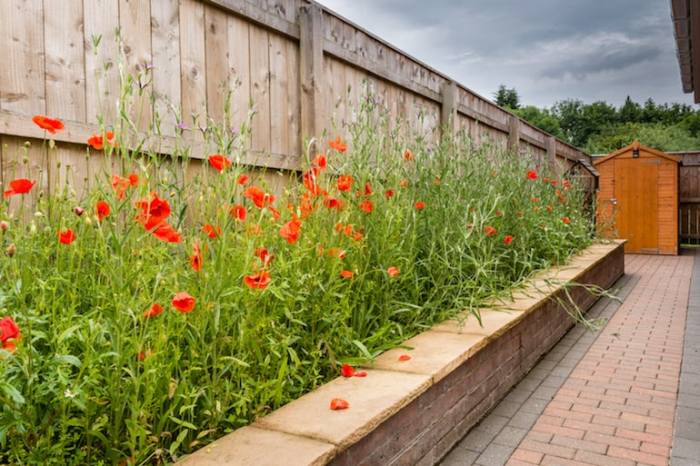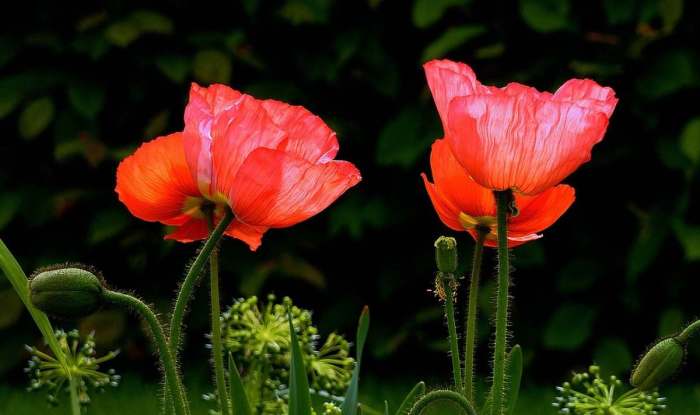Legality of Growing Poppies
Can you plant poppy seeds in pots – Cultivating poppies, even from seemingly innocuous seeds, carries significant legal implications varying widely across jurisdictions. The key distinction lies between ornamental poppy varieties and opium poppies, with the latter’s cultivation strictly controlled due to its opium content, a source of potent narcotics. Penalties for illegal cultivation can range from fines to imprisonment, depending on the scale of the operation and the specific laws of the region.
Legal Restrictions on Poppy Cultivation

Source: thompson-morgan.com
The legal landscape surrounding poppy cultivation is complex and differs substantially between countries and even within states. Ornamental poppy varieties, typically grown for their aesthetic appeal, are generally legal to cultivate in most regions with minimal restrictions. However, opium poppies (Papaver somniferum), known for their opium production, are subject to strict regulations and often outright prohibition. These regulations aim to curb the illicit production of narcotics.
The penalties for illegal cultivation can be severe, escalating with the quantity of plants grown and the intent to produce opium.
Penalties for Illegal Poppy Cultivation, Can you plant poppy seeds in pots
Penalties for illegal poppy cultivation vary greatly depending on the jurisdiction. Some regions may impose hefty fines, while others might levy imprisonment sentences. Factors influencing the severity of penalties include the number of plants cultivated, the presence of opium extraction equipment, and the intent to produce or distribute narcotics. In some countries, illegal cultivation can result in lengthy prison sentences and substantial financial penalties.
International Legal Status of Poppy Cultivation
| Country/State | Legality of Ornamental Poppies | Legality of Opium Poppies | Penalties |
|---|---|---|---|
| United States (varies by state) | Generally legal | Illegal; requires special permits for research or medicinal purposes | Fines, imprisonment, forfeiture of property |
| Canada | Generally legal | Illegal; requires license for specific purposes (e.g., research) | Fines, imprisonment |
| United Kingdom | Generally legal | Illegal; cultivation requires a Home Office license | Fines, imprisonment |
| Australia | Generally legal | Illegal; requires special permits | Fines, imprisonment |
| Germany | Generally legal | Illegal; requires special permits for controlled cultivation | Fines, imprisonment |
Note: This table provides a general overview and may not reflect the nuances of specific local regulations. Always verify with local authorities before cultivating any poppy variety.
Suitable Potting Conditions for Poppy Seeds
Successfully growing poppies in pots requires careful attention to several factors, including soil composition, pot size, drainage, and sunlight exposure. Providing the optimal environment will significantly increase your chances of healthy growth and abundant blooms.
Ideal Potting Conditions for Poppies

Source: gardeningtips.in
Poppies thrive in well-draining soil that is slightly acidic to neutral (pH 6.0-7.5). A well-balanced potting mix that retains some moisture but avoids waterlogging is crucial. Choose pots with drainage holes to prevent root rot. Six-inch pots are generally sufficient for most poppy varieties, allowing for adequate root development. Poppies require ample sunlight; at least six hours of direct sunlight per day is ideal for optimal growth.
A south-facing location is usually best.
Step-by-Step Guide to Preparing the Potting Mix and Containers
- Select well-draining pots with drainage holes.
- Fill the pots with a high-quality potting mix, ensuring that it is not overly compacted.
- Gently water the potting mix to settle it and ensure it is evenly moist but not saturated.
- Allow excess water to drain completely before sowing seeds.
Sowing and Germination Techniques for Poppies
Sowing poppy seeds can be achieved through direct sowing into pots or by starting seeds indoors for a head start. Both methods have their advantages and disadvantages in terms of success rate and timing.
Poppy Seed Sowing Methods
- Direct Sowing: Sow seeds directly into the prepared pots, lightly covering them with a thin layer of soil. This method is simple but might result in lower germination rates due to potential environmental challenges.
- Starting Seeds Indoors: Sow seeds in seed trays or small pots indoors, providing controlled conditions for optimal germination. Once seedlings have developed a few true leaves, transplant them into larger individual pots. This method generally yields higher germination rates and allows for earlier flowering.
Poppy Seedling Care and Growth
Consistent care during the seedling stage is crucial for healthy poppy growth. This involves proper watering, fertilization, and addressing potential problems. Recognizing the signs of healthy and unhealthy seedlings is essential for timely intervention.
Watering and Fertilizing Poppy Seedlings
Water seedlings regularly, keeping the soil consistently moist but not waterlogged. Reduce watering frequency as plants mature. Light fertilization with a balanced, water-soluble fertilizer can promote healthy growth, but avoid over-fertilizing, which can damage the plants. Use a diluted solution of a balanced liquid fertilizer every few weeks during the growing season.
Common Poppy Seedling Problems and Solutions
Common problems include damping-off (a fungal disease affecting seedlings), pests such as aphids, and nutrient deficiencies. Damping-off can be prevented by using sterile potting mix and ensuring good air circulation. Pests can be controlled with insecticidal soap or neem oil. Nutrient deficiencies can be addressed by applying a balanced fertilizer.
Healthy vs. Unhealthy Poppy Seedlings
Healthy poppy seedlings exhibit vibrant green leaves, strong stems, and vigorous growth. Unhealthy seedlings may appear stunted, yellowed, or wilted, with signs of disease or pest infestation. A healthy seedling will stand upright with strong, deep green leaves. An unhealthy seedling may have pale, yellowing leaves, be stunted in growth, or show signs of wilting or decay at the base of the stem.
Poppy Plant Maintenance and Harvesting (Ornamental Varieties): Can You Plant Poppy Seeds In Pots
Maintaining ornamental poppies involves deadheading, pest and disease control, and timely seed harvesting. Proper seed storage ensures viability for future planting.
Yes, poppy seeds can be successfully planted in pots, offering a convenient way to grow these beautiful flowers. The success rate, however, might depend on the type of poppy seed; it’s worth considering the broader question of whether you can successfully plant hybrid seeds, as discussed in this helpful article: can you plant hybrid seeds. Understanding hybrid seed viability will inform your approach to planting poppy seeds, ensuring a higher chance of germination and a vibrant display of blooms in your pots.
Deadheading and Pest Control
Deadheading, or removing spent flowers, encourages continuous blooming. Regularly inspect plants for pests and diseases, addressing any issues promptly using appropriate methods. Common pests include aphids and slugs; common diseases include fungal infections.
Harvesting and Storing Poppy Seeds
Harvest poppy seeds once the seed pods have fully dried and turned brown. Allow the pods to dry completely on the plant before collecting seeds. Store seeds in a cool, dry, and dark place in airtight containers to maintain their viability.
Helpful Answers
What types of poppies are suitable for pot cultivation?
Many poppy varieties, especially the smaller, ornamental types, thrive in pots. Research specific varieties to ensure they are appropriate for container growing.
How long does it take for poppy seeds to germinate?
Germination time varies depending on the variety and conditions, but generally takes 1-3 weeks.
What should I do if my poppy seedlings look leggy?
Leggy seedlings indicate insufficient light. Increase light exposure or use grow lights.
Can I reuse the same pot for poppies the following year?
Yes, but sterilize the pot thoroughly to prevent disease.
